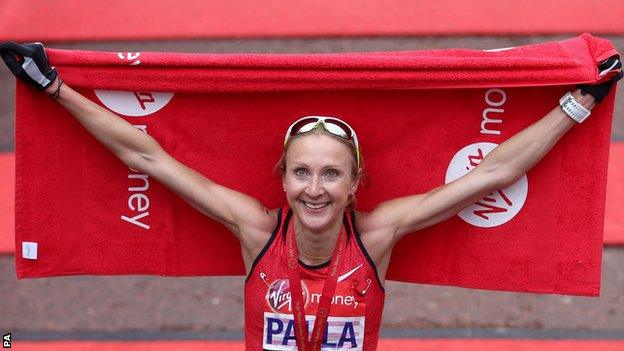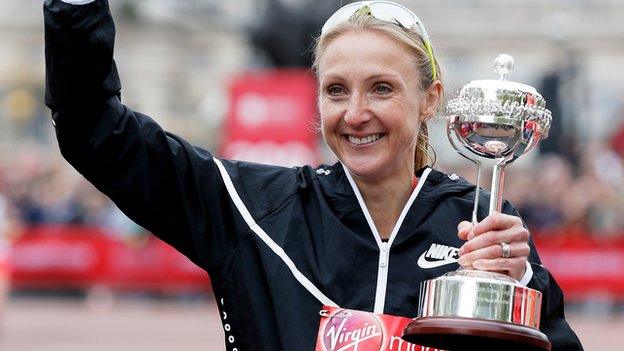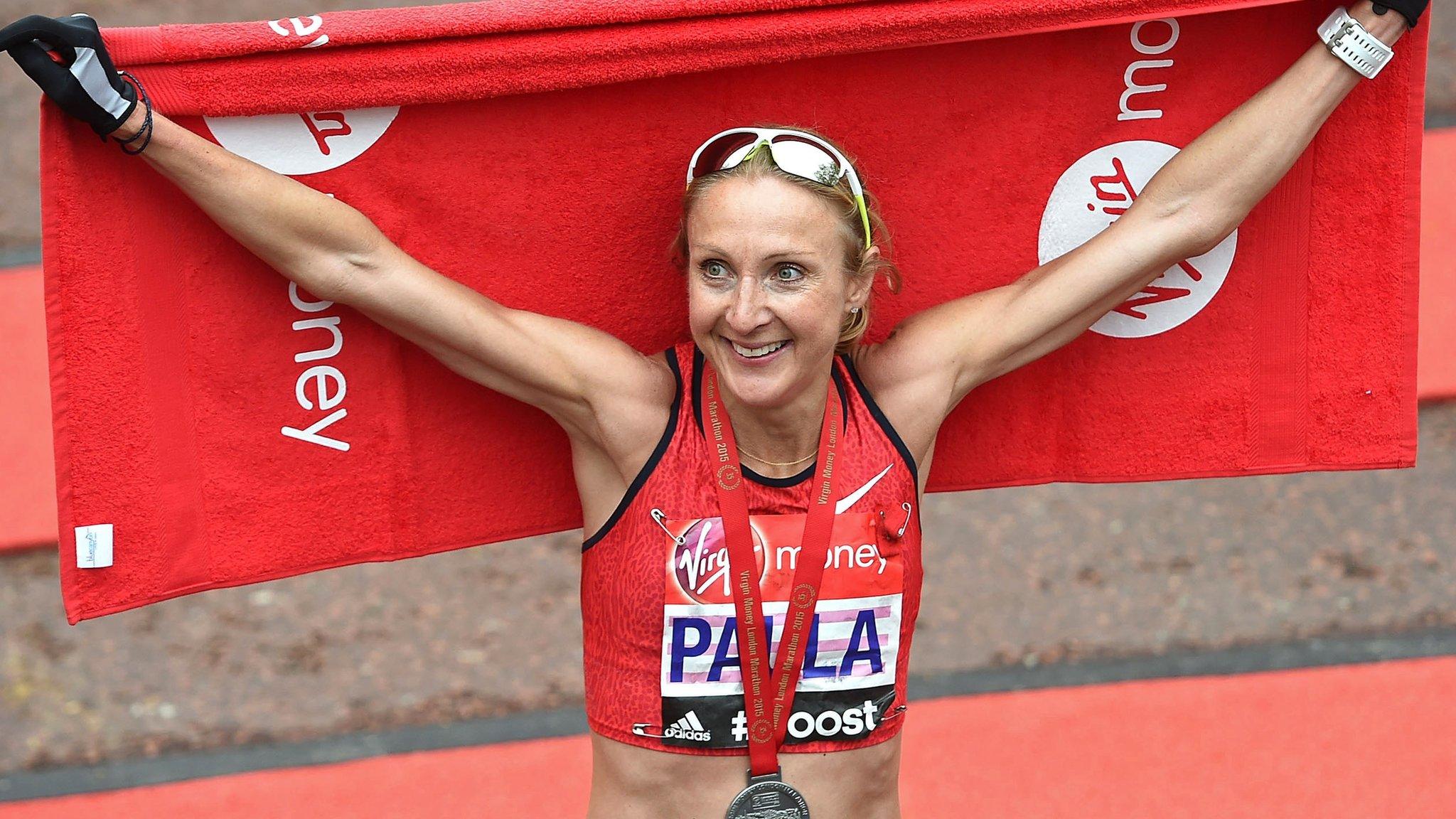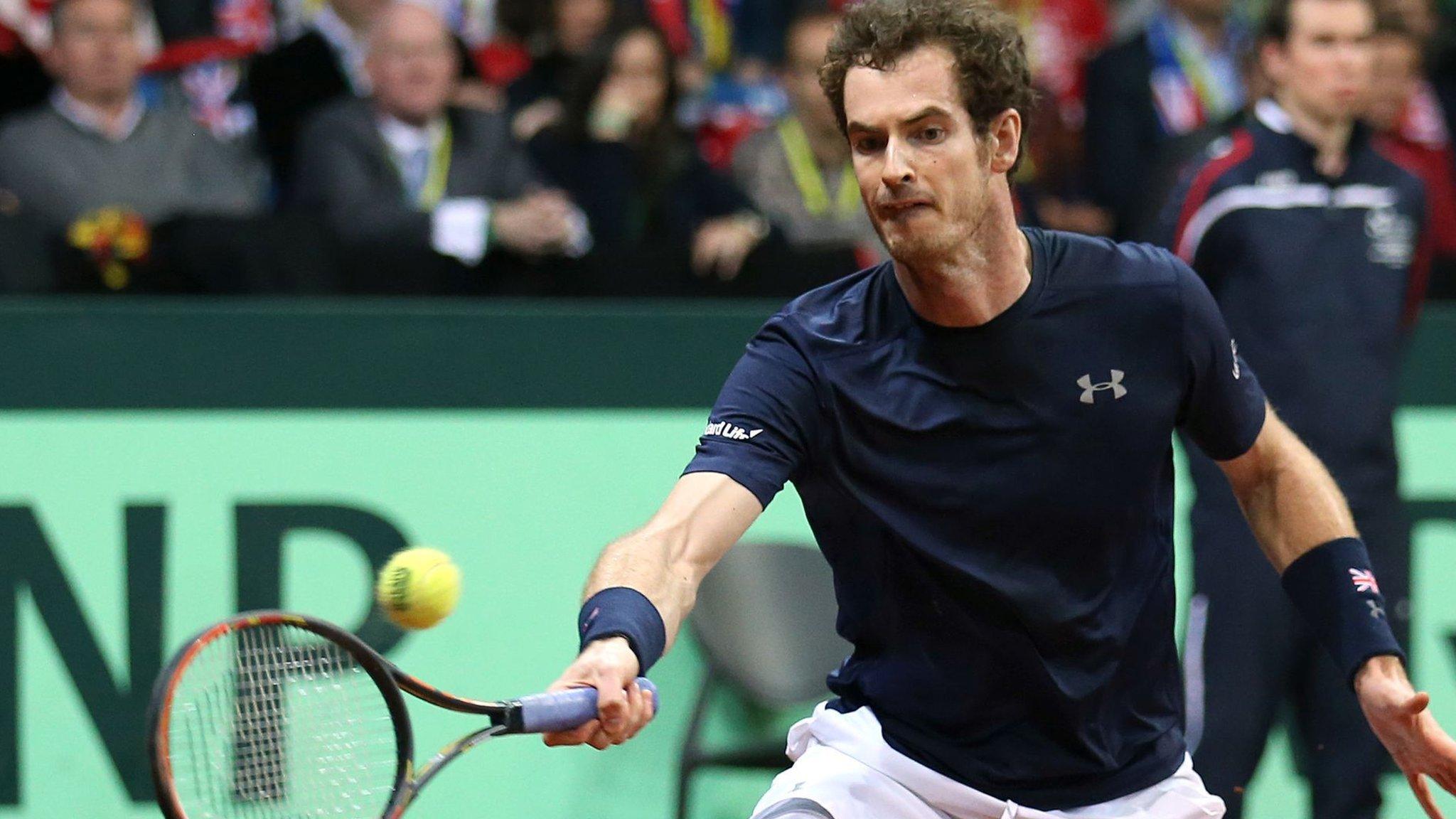Paula Radcliffe 'relief' as IAAF says claims 'a gross misinterpretation'
- Published

Paula Radcliffe has "categorically" denied any form of cheating
Paula Radcliffe says she is relieved to have been vindicated after the IAAF and the UK Anti-Doping agency (UKAD) found her innocent of blood doping.
After media reports alleged widespread blood doping she claimed she had been implicated by a parliamentary hearing, and publicly denied cheating.
On Friday, the IAAF said the allegations were "a gross misinterpretation of raw data".
Radcliffe told the BBC: "It's a relief. It should never have come to this."
Speaking to BBC Radio 5 live, she added: "The reason I spoke out was to protect myself and protect my name. It was important that I took a stand knowing that there were other innocent athletes out there."
And on Sky Sports Radcliffe said: "Obviously there's been damage done to my reputation and to the reputation of the sport as well.
"In the climate of things maybe people think it's not important right now, but it's important to me and the attacks made on my integrity and my credibility."
Why did the IAAF launch an investigation?
Back in the summer The Sunday Times and German TV station ARD made allegations about doping in athletics, having obtained the results of 12,000 blood tests from 5,000 athletes taken between 2001 and 2012.
In the wake of their reports, and subsequent comments made at a parliamentary hearing, Radcliffe, who had not been named, felt forced to go public to "categorically" deny ever blood doping.
There was also a suggestion the IAAF had not acted on suspicious tests, but on Friday athletics' world governing body dismissed claims it had ignored evidence of cheating, and completely exonerated Radcliffe.
It said she had been "accused of blood doping based on the gross misinterpretation of raw and incomplete data", and that "there are clearly plausible explanations for the values in her profile that are entirely innocent".
Speaking in September, Paula Radcliffe denies cheating
It added it could not "sit idly by while public confidence in its willingness to protect the integrity of its sport is undermined by allegations of inaction or incompetence that are based on bad scientific and legal argument".
And what about UKAD?
UK Anti-Doping said that, having reviewed the data on Radcliffe that the IAAF had shared with UKAD, it had concluded "there is no case to answer".
UKAD added: "The data does not provide any evidence that any anti-doping rule violation proceedings should be brought."
The World Anti-Doping Agency (Wada) is still investigating the claims, having said in the summer it was "very alarmed" by the allegations.
Analysis: BBC athletics commentator Ed Harry
"Such a strong rebuttal of the allegations made by The Sunday Times and ARD in August is significant.
"I know from conversations with IAAF staff how unhappy they were with the interpretation of the blood data by this joint investigation - which cast a long shadow over the build up to the World Championships.
"Only two experts were consulted for their opinion. That's not how the Blood Passport, external works. Instead, three independent experts all analyse the data, and only if all three agree is the athlete sanctioned for a doping offence.
"The IAAF also makes the point that all these samples should be considered as incomplete data, because they pre-date the Blood Passport.
"It was stung by the strong suggestion it had been negligent. Belatedly, it is fighting back, with frequent mentions of Wada's support throughout this statement.
"The IAAF says it welcomes investigative journalism but not what, in this case, it alleges is 'bad scientific and legal argument'."
- Published27 November 2015

- Published8 September 2015

- Published10 September 2015

- Published8 February 2019

- Published20 November 2015
